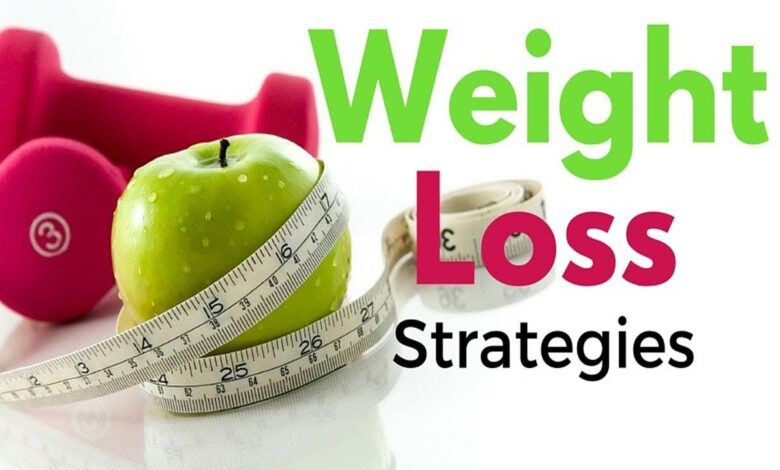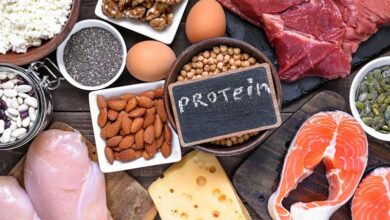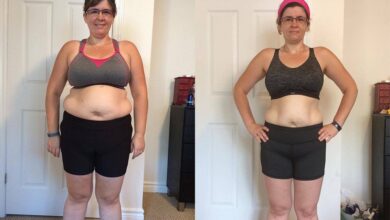
Weight loss is hard enough, but when you’re juggling a career, a family, and endless responsibilities, it can feel nearly impossible. Busy lifestyles leave little room for cooking healthy meals, hitting the gym, or tracking calories. Instead, convenience often takes over—fast food, late-night snacking, and skipping exercise. The result? Weight gain, fatigue, and sometimes serious health problems like diabetes or heart disease.
But here’s the good news: you don’t need hours in the gym or a celebrity meal plan to lose weight. What you need are time-efficient, sustainable strategies that fit into your already packed schedule. Think of it as hacking your health with simple, proven adjustments.
In this guide, I’ll walk you through 8 quick weight loss strategies that are practical for anyone living a busy life—whether you’re a professional in New York, a student in Nigeria, or a parent managing a household in London. These strategies aren’t about starvation or fad diets; they’re about smart eating, effective workouts, and lifestyle tweaks that work fast and last long.
So, grab a notebook or bookmark this page. By the end, you’ll have an action plan that makes weight loss achievable, even with the busiest schedule.
1. Intermittent Fasting: The Time-Saving Weight Loss Hack
Intermittent fasting (IF) has become one of the most popular quick weight loss strategies in the world. The reason is simple: it works without requiring complicated meal plans or calorie counting. For busy people, this method is golden because it saves time—you’re not cooking or eating multiple meals throughout the day.
The most common fasting style is the 16/8 method, where you fast for 16 hours and eat all your meals within an 8-hour window (for example, between 12 PM and 8 PM). This approach naturally reduces your calorie intake, boosts metabolism, and helps your body tap into stored fat for energy.
Research shows that intermittent fasting can lead to improved insulin sensitivity, fat-burning, and reduced inflammation. Plus, it simplifies life—imagine not worrying about breakfast when you’re rushing out the door.
Pro Tip: Start small with a 12/12 fasting schedule (12 hours of eating, 12 hours of fasting) before moving to 16/8. Drink water, green tea, or black coffee during fasting hours to stay energized.
Benefits for Busy Lifestyles:
- Saves time in meal prep
- Cuts down on snacking
- Boosts fat-burning without extra effort
2. High-Protein Diet: Fuel That Keeps You Full
If there’s one diet hack that works across cultures and lifestyles, it’s eating more protein. Protein is a fat-loss powerhouse because it keeps you full, stabilizes blood sugar, and helps preserve muscle while burning fat.
Busy people often grab quick carb-heavy snacks—pastries, chips, or sugary drinks—that spike energy levels and then cause a crash. By swapping those for protein-rich options like Greek yogurt, boiled eggs, nuts, chicken, or plant-based alternatives like beans and lentils, you’ll feel fuller for longer.
Studies prove that protein increases thermogenesis—your body actually burns more calories digesting protein compared to carbs or fat. This is a win-win for weight loss.
Here’s a quick comparison:
| Food Type | Satiety Level | Time to Digest | Fat-Burning Support |
|---|---|---|---|
| High-protein meals | Very high | Longer | Strong |
| High-carb snacks | Low | Quick | Weak |
| High-fat snacks | Medium | Medium | Moderate |
Pro Tip: For breakfast, choose eggs over bread. For lunch, add chicken or fish instead of fries. For snacks, keep nuts handy instead of cookies.
3. Smart Meal Prepping: Outsmarting the Clock
Meal prepping is one of the most effective ways to stay consistent with your diet when life gets hectic. Instead of scrambling for food during your lunch break or ordering expensive takeout, you’ll have healthy meals ready in minutes.
The secret is batching your cooking. Set aside 2–3 hours once a week (maybe on Sunday evening) to cook large portions of proteins, vegetables, and grains. Store them in portion-controlled containers in your fridge or freezer. During the week, just grab and go.
Think of it like “Netflix for meals”—you binge-cook once, then enjoy the convenience later.
Smart meal prepping not only helps with weight loss but also saves money and reduces stress. You won’t be tempted by fast food because your fridge is stocked with quick, healthy options.
Busy Lifestyle Hack: Use appliances like slow cookers, air fryers, or instant pots to cut down cooking time. Pair proteins with veggies and a small portion of whole grains for balanced meals.
4. Quick HIIT Workouts: Maximum Results in Minimum Time
If you don’t have hours to spend at the gym, High-Intensity Interval Training (HIIT) is your best friend. HIIT involves short bursts of intense exercise (like sprinting or jumping jacks) followed by short rest periods.
Why does this work for busy people? Because you can torch fat in as little as 15–20 minutes. Studies show HIIT burns more calories than traditional steady-state cardio and boosts your metabolism for hours afterward (the “afterburn effect”).
Here’s a simple 10-minute HIIT workout you can do anywhere:
- Jump squats – 30 seconds
- Push-ups – 30 seconds
- Mountain climbers – 30 seconds
- Rest – 30 seconds
- Repeat the circuit 3 times
No gym, no equipment, just results.
Pro Tip: Schedule your HIIT session first thing in the morning. It sets the tone for your day and eliminates the excuse of being “too tired” later.
5. Portion Control: Small Plates, Big Results
Busy people often eat mindlessly—grabbing big portions at restaurants, buffets, or during family meals. Portion control is one of the easiest quick weight loss strategies because it doesn’t restrict what you eat, just how much.
Use smaller plates, bowls, and cups to naturally reduce portions without feeling deprived. Research shows that visual cues strongly influence eating habits. For example, if you use a smaller plate, your brain thinks you’re eating more.
You can also try the half-plate rule: fill half your plate with vegetables, a quarter with protein, and a quarter with whole grains. This balance ensures fewer calories while still being satisfying.
Pro Tip: Eat slowly and put down your fork between bites. This gives your brain time to register fullness and prevents overeating.
6. Drink More Water: The Simplest Fat-Burner
Water is often overlooked in weight loss, but it’s one of the simplest and most effective tools. Drinking enough water keeps your metabolism active, helps you feel full, and prevents mistaking thirst for hunger.
For busy people, dehydration is common—you rush through your day with coffee or soda and forget plain water. This not only stalls weight loss but also causes fatigue, headaches, and poor concentration.
Here’s an easy trick: Drink a glass of water before every meal. Studies show this can reduce calorie intake by up to 13%.
| Time of Day | Water Hack |
|---|---|
| Morning | Drink 2 glasses on waking up |
| Before meals | 1 glass before each meal |
| Afternoon slump | Replace soda with water |
| Evening | Herbal tea instead of snacks |
Pro Tip: Carry a reusable water bottle everywhere. Add lemon slices or cucumber for flavor if plain water feels boring.
7. Sleep Smarter: The Hidden Weight Loss Weapon
Most people don’t connect sleep with weight loss, but it’s a critical factor. Lack of sleep messes with your hormones, increases cravings, and slows your metabolism. Busy people often sacrifice sleep to get more done, but the cost is weight gain.
When you sleep less than 6 hours, your body produces more ghrelin (the hunger hormone) and less leptin (the fullness hormone). This makes you crave junk food the next day. Worse, your body stores more fat because it’s under stress.
Aim for 7–8 hours of quality sleep each night. Set a consistent bedtime, avoid screens an hour before bed, and create a calm nighttime routine.
Pro Tip: Think of sleep as part of your diet plan. It’s free, effortless, and one of the fastest ways to improve fat loss results.
8. Stress Management: Stop Emotional Eating
Stress is a hidden enemy of weight loss. Busy lifestyles often come with deadlines, bills, family responsibilities, and constant pressure. Stress increases cortisol (the stress hormone), which makes your body hold onto belly fat. It also triggers emotional eating—grabbing chocolate or chips for comfort.
Managing stress is key to sustainable weight loss. Simple practices like deep breathing, meditation, yoga, journaling, or even short walks can lower cortisol and reduce cravings.
Pro Tip: Instead of stress-snacking, create a new habit. When you feel overwhelmed, drink water, take 5 deep breaths, or step outside for fresh air.
Conclusion: Making Weight Loss Work for Busy Lives
Quick weight loss doesn’t mean extreme diets or punishing workouts. It means making small, smart changes that fit into your lifestyle. Whether it’s intermittent fasting, protein-packed meals, HIIT workouts, or better sleep, each of these strategies adds up.
Remember: You don’t have to do everything at once. Start with one or two strategies that feel doable and build from there. Consistency beats perfection.
The truth is, your busy lifestyle doesn’t have to hold you back. In fact, with the right hacks, you can make weight loss easier than ever before.
Read Also Simple Daily Habits for Weight Loss: Proven Guide for Busy Professionals
FAQs on Quick Weight Loss Strategies
1. Can I lose weight without going to the gym?
Yes! With HIIT workouts, walking, or home bodyweight exercises, you can burn fat without ever stepping into a gym.
2. How fast will I see results with these strategies?
Most people see noticeable changes within 4–6 weeks, but consistency is key. Small daily actions create long-term success.
3. Are quick weight loss strategies safe?
Yes, if done correctly. These strategies focus on balanced eating, exercise, and lifestyle changes—no crash diets or extreme methods.
4. What’s the best weight loss strategy for beginners?
Start with drinking more water, practicing portion control, and getting better sleep. These are easy, safe, and build momentum.
5. Can I still eat my favorite foods?
Absolutely. Weight loss is about balance. Use portion control, enjoy treats in moderation, and focus on healthy meals most of the time.




One Comment